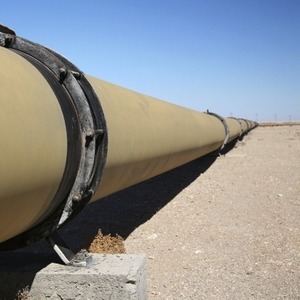Iowa bill limits use of eminent domain for CO2 pipelines

March 27, 2023
BY Erin Krueger
The Iowa House of Representatives on March 22 voted 73 to 20 in favor of a bill that would require carbon dioxide pipeline companies to acquire at least 90 percent of route miles through voluntary deals before they could seek the use of eminent domain.
The bill, H.F. 565, also includes provisions calling for the creation of a legislative committee to evaluate eminent domain practices and procedures applicable under Iowa law. The committee would make recommendations related to standards for entering land for land surveying purposes; review of land restoration standards; review of eminent domain public benefit and private use tests; and engineering study analysis. The committee would report its finding to the Iowa Legislature before the end of the year.
An earlier version of the bill included more stringent requirements for pipeline companies, including language that aimed to prohibit the Iowa Utilities Board from issuing any permits for carbon dioxide pipeline projects until the U.S. Department of Transportation’s Pipeline and Hazardous Materials Administration provides new rules updating the safety standards for liquified carbon dioxide pipelines, including requirements related to emergency preparedness and response. In addition to the 90 percent voluntary easement requirement, the legislation also would have required pipeline companies to acquire all applicable pipeline construction and zoning permits from other states the project would be constructed in before seeking the use of eminent domain in Iowa. Many of these more stringent bill provisions were eliminated via bill amendments.
Following its passage in the House, the amended legislation was delivered to the Iowa Senate and referred to the Senate Commerce Committee.
Advertisement
Advertisement
The Iowa Renewable Fuels Association is speaking out against the bill, stressing it “would create a de facto bank on new project that allow Iowa ethanol producers to install carbon capture and sequestration (CCS) technology.” While an amendment did remove several problematic provisions from the legislation, the IRFA said the bill still singles out carbon dioxide pipelines for strict regulations that would not be applied to pipelines carrying flammable or explosive liquids.
“We are disappointed that the Iowa House singled out CCS projects with what in reality is an effective ban,” said Monte Share, executive director of the IRFA. “If this is about property rights, why doesn’t the legislation impact all projects? If this is about safety, why doesn’t the bill apply to pipelines that carry explosive or flammable substances? Singling out CCS is a mistake for Iowa’s future. This bill will hurt Iowa ethanol production, which hurts Iowa corn prices, which hurts Iowa farmers and the economy.”
IRFA recently released a study that found without viable access to CCS, Iowa could see 75 percent of its ethanol production migrate to states that facilitate sequestration. Losing nearly 3.5 billion gallons of Iowa ethanol production would reduce the local corn grind by over one billion bushels. Phase 2 of the study found that the loss of local corn demand would reduce the profitability of corn production in Iowa by an average of 85 percent, resulting in over $1 billion of lost income for Iowa corn farmers.
Advertisement
Advertisement
“IRFA will continue to fight for a fair and equitable path forward for CCS technology in the Iowa Senate,” Shaw continued. “IRFA members are largely Iowa farmers and landowners. They understand the emotions at play in this type of debate. It is important to remember that a super majority of landowners actually impacted by the CCS projects have already signed voluntary easements.”
IRFA also noted that it does not object to the provisions in the bill that clarify and expand landowner rights that apply to all projects that come before the Iowa Utilities Board.
Additional information, including a full copy of the legislation, is available on the Iowa Legislature website.
Related Stories
CountryMark on July 22 celebrated the completion of more than $100 million in upgrades at its refinery in Indiana, including those related to soybean oil storage. The facility produces renewable diesel via coprocessing technology.
ATOBA Energy and Air Moana are partnering to implement scalable solutions for the supply of SAF. The collaboration aims to ensure long-term SAF availability while supporting local initiatives to develop sustainable fuel production in Tahiti.
While final IRS guidance is still pending, the foundation of the 45Z program is well defined. Clean fuel producers should no longer be waiting; they can now move forward with critical planning and preparation, according to EcoEngineers.
Neste Corp. on July 24 released second quarter results, reporting record quarterly renewable product sales volumes despite weaker margins. SAF sales were up nearly 80% when compared to the first quarter of 2025.
Valero Energy Corp. on July 24 released second quarter results, reporting a profitable three-month period for its ethanol segment. The renewable diesel segment posted a loss, but the company’s new sustainable aviation fuel (SAF) unit operated well.
Upcoming Events










